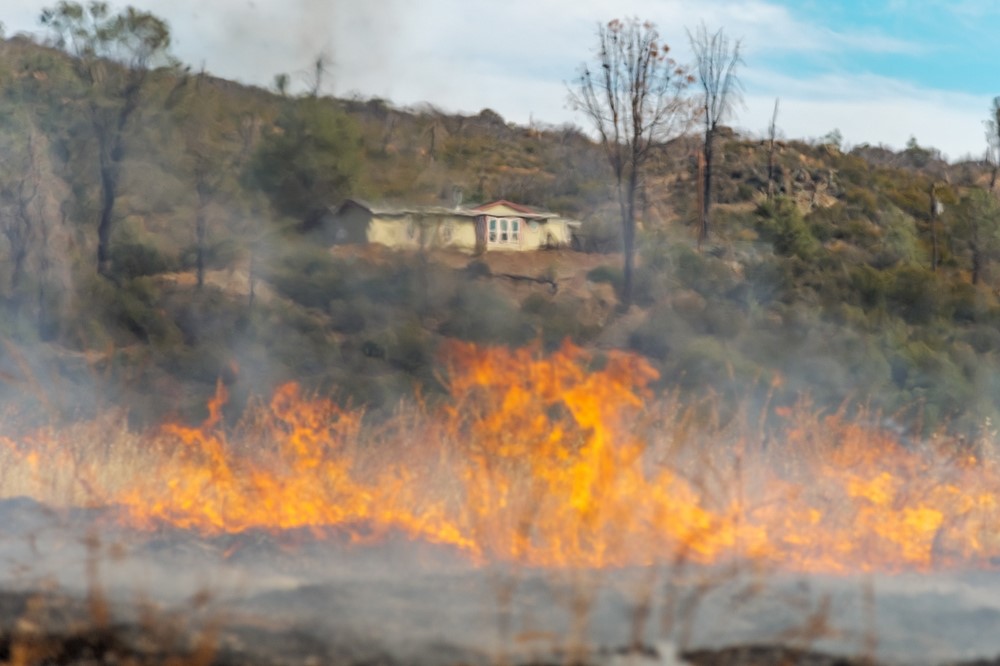June 2, 2025

Manitoba wildfires have caused destruction of homes, cottages, and property. You’ll need to know if your home and cottage insurance covers wildfires.
Wildfire protection is typically included in your Manitoba home and cottage insurance policies. If you are under evacuation order, standard home, cottage, and tenant insurance policies provide additional living expense coverage, which starts the moment you are forced to leave your dwelling. So, you can start your claim right away.
Wildfires are generally considered a "named peril" in many policies, meaning they would be covered. Home and cottage insurance generally includes two main types of coverage for wildfire damage:
This protects the physical structure of your Manitoba home or cottage if it’s damaged by a wildfire. It also includes your garage and other permanent structures.
If your home is damaged by a wildfire, your home/cottage insurance typically can help repair or rebuild your home. If you need to move out while your home is being repaired, your home insurance should cover additional living expenses for this as well. You should always review your policy for exclusions or limitations that could affect your wildfire coverage of your Manitoba home or cottage.
Personal property coverage protects your personal belongings, such as furniture, clothing, and electronics, in the event they are damaged or destroyed by a wildfire. Do you have a list and photos of your personal belongings and their value in case you need to submit a claim?
When your insurer determines your home or cottage insurance premium, the risk of fire damage is one of the key factors they consider. In addition to whether you live in a high-risk area, insurance companies consider these factors when insuring a property:
If you live in an area at high risk for wildfires, such as near forests or grasslands, your insurance policy might include wildfire-specific exclusions or higher premiums. Policies vary between insurance providers.
Check your policy’s coverage limits to ensure they’re adequate to rebuild your home and replace your belongings if lost in a wildfire.
Here are some additional steps you can take to ensure you're fully protected:
If you're in a high-risk area, consider adding an endorsement (or rider) to your policy to provide more comprehensive coverage for wildfires. These endorsements can increase your coverage limits or cover additional wildfire-related damages, such as smoke damage or debris removal.
In some areas, rebuilding costs can sometimes exceed standard policy limits. You’ll want to make sure that your dwelling coverage limit is enough to rebuild your home or cottage in the event of a total loss. It’s usually possible to raise your limits or purchase additional coverage to ensure full protection.
Creating an inventory can help make the claims process much easier if you ever need to replace personal property lost in a wildfire.
Insurers will reassess risks and if an area is considered a high risk for wildfires, this typically leads to higher home insurance premiums for those living in those areas.
A single wildfire event may not immediately impact premiums, but the increasing frequency and intensity of wildfires, along with other factors like inflation and supply chain issues, are causing a general increase in home insurance costs.
Being prepared for wildfire can make a difference. It helps you minimize risk to your home or cottage and can ensure a quick and safe evacuation for you, your loved ones, and pets if needed.
A wildfire is an uncontrolled, unplanned fire that usually occurs in a forest or on grasslands. A wildfire is usually caused by lightning or human activity.
Wildfires can be beneficial, helping to clear the forest floor, release nutrients, and create habitats for certain species. They can help control insect infestations and trees such as the jack pine need fire to reproduce.
Be aware of fire bans and restrictions in your area. Do not leave your campfire unattended and make sure it is extinguished. Do not throw away your cigarette butts in a forest or on grasslands.
Stay indoors with windows and doors closed. Use a HEPA air filter if you have access to one. If you need to go outside, wear an N95 mask. It’s important to monitor local air quality and follow local health guidelines.
They can cause billions of dollars of property damage. Wildfires can affect the physical, chemical, and biological quality of streams, rivers, lakes and reservoirs for years. Wildfires also impact animals through habitat loss, smoke inhalation, and change predator-prey dynamics.
· Use fire-resistant materials like asphalt, metal, slate, clay, stucco, or brick for roof construction and siding.
· Do not store propane or gas tanks or firewood piles under your deck or close to your home.
· Cut away large branches that overhang your roof.
· Clean roofs and gutters of dead leaves, debris and pine needles that could catch embers.
· Remove any dead branches and debris from under your deck.
· Water plants and trees, and mulch regularly.
Being prepared for wildfire can make a difference. It helps you minimize risk to your home or cottage and can ensure a quick and safe evacuation for you, your loved ones, and pets if needed.
A wildfire is an uncontrolled, unplanned fire that usually occurs in a forest or on grasslands. A wildfire is usually caused by lightning or human activity.
Wildfires can be beneficial, helping to clear the forest floor, release nutrients, and create habitats for certain species. They can help control insect infestations and trees such as the jack pine need fire to reproduce.
Be aware of fire bans and restrictions in your area. Do not leave your campfire unattended and make sure it is extinguished. Do not throw away your cigarette butts in a forest or on grasslands.
Stay indoors with windows and doors closed. Use a HEPA air filter if you have access to one. If you need to go outside, wear an N95 mask. It’s important to monitor local air quality and follow local health guidelines.
They can cause billions of dollars of property damage. Wildfires can affect the physical, chemical, and biological quality of streams, rivers, lakes and reservoirs for years. Wildfires also impact animals through habitat loss, smoke inhalation, and change predator-prey dynamics.
© 2026 Wyatt Dowling Insurance Brokers. All Rights Reserved. Wyatt Dowling is a division of Western Financial Group


 Call Us
Call Us






